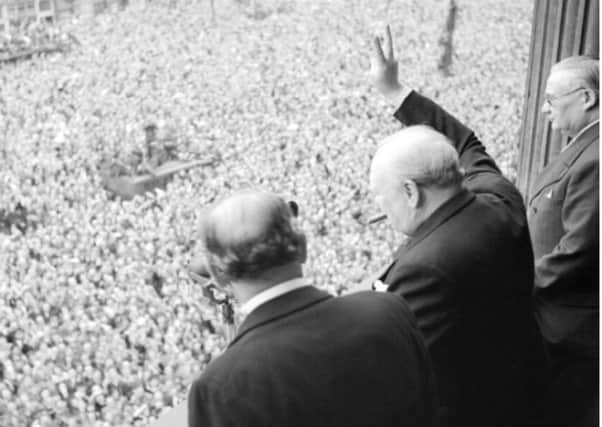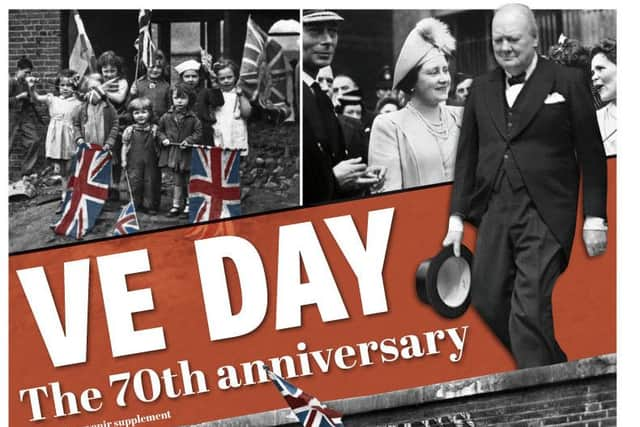Facts you need to know about VE Day’s 70th anniversary


Events to celebrate the milestone are planned across the area but here is a timeline of facts to help top up your knowledge of the historic day:
Following Hitler’s suicide on April 30 1945, Germany surrendered unconditionally to allied forces at 2.41pm on May 7.
Advertisement
Hide AdAdvertisement
Hide AdActive operations by the German forces then ceased at 11.01pm on May 8.
At 3pm on May 8, British Prime Minister Winston Churchill broadcast to the nation, declaring the war to be over with the immortal words: “We may allow ourselves a brief period of rejoicing. Today is Victory in Europe Day.”
In total the Second World War lasted six years and one day, from September 1 1939 to September 2 1945.
The Second World War in Europe saw approximately 382,700 British service personnel and 67,100 civilians killed.
Advertisement
Hide AdAdvertisement
Hide AdEffects of the war remained in Britain as rationing continued until July 1954 with bacon and meat being the last to go.
After the war, Germany was divided into four zones: British, French, American (western zone) and Russian.
British and Commonwealth Armed Forces continued fighting in Burma, Singapore and Thailand for a further three years until Japan’s surrender.
To find out about VE Day events in your area view this online map.
Advertisement
Hide AdAdvertisement
Hide AdToday will be a day of remembrance including a two-minute silence across the country at 3pm. In the evening a chain of more than 100 beacons will be lit across the UK.


On Saturday, cathedrals across the country have been invited to ring their bells in celebration at 11am. On Sunday there will be a Service of Thanksgiving at Westminster Abbey, a parade along Whitehall and a reception for veterans in St James’s Park hosted by the Legion with a flypast in the afternoon.
What are you doing to mark VE Day? Share your events with us below.